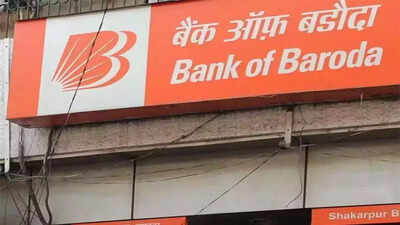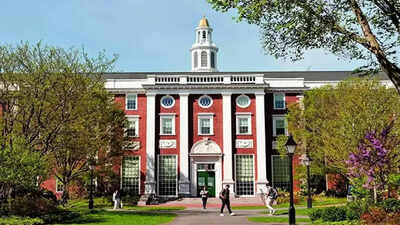Degrees are rising, jobs are not: Why a Master’s no longer guarantees employment

The gown was ironed, the applause was loud, and the eyes were filled with fond hopes of a bright future. Years of late-night study sessions, sacrificed weekends, toiling hard, and mounting debt had culminated in one defining moment: A Master’s degree. For years, this was the moment students waited for, a bridge between their ambitions and achievements, between potential and prosperity.But it felt like the script was suddenly flipped.In 2025, the bridge led to an open-ended pathway where the road ahead was not seen. Scrolling through job boards and online forums, the optimism once etched to advanced degrees was flickering. The hopes had translated into confusion and even despair. Resumes bring impressive credentials into the digital void. Interviews are scarce. Offers, when they come, don’t match the investment.The present job market reeks of irony, where the most educated generation in history is encountering one of the most unpardonable job markets in decades. Is this a labour story? No, but a story of expectations, economy, and evolving value. It reiterates a question about how a society that once revered degrees now questions their worth. At the heart of it lies a troubling truth: A master’s degree, long seen as a golden ticket, no longer guarantees a place at the table.
The numbers don’t lie: Degrees outpaced by disappointment
The data paints a sobering picture. According to the St. Louis Federal Reserve, the unemployment rate for Gen Z graduates with a master’s degree soared to 5.8% in the first half of 2025, nearly double from the previous year, and alarmingly higher than the national average of 4.1%. These are not theatre majors in limbo; these are individuals with advanced qualifications now adrift in an oversaturated market.Meanwhile, 43% of master’s degree holders reported turning down job offers because the salaries couldn’t offset the student debt they incurred,, an insight from Indeed’s data that adds insult to injury. For those still enrolled, the average cost of a master’s now hovers around $62,820, according to the Education Data Initiative, excluding lost earnings and time spent out of the workforce.
The promise that fizzled: When the market doesn’t need you
An advanced degree was said to glorify in the interviews and sit at a privileged position. Alas, this is a narration of a story of the past. Today, that seat is vacant for someone with hands-on experience, even if their academic credentials stop at a Bachelor’s. As employers are more inclined to skill-oriented courses that can reshape their job roles. The academic prestige is at a vulnerable stage, on the edge of losing its shine.This erosion of the degree-to-job pipeline isn’t limited to niche fields. Even MBA graduates who were once considered bulletproof in boardrooms are struggling to meet the job requirements. A Bloomberg study recently reported hiring freezes across multiple industries, and mass layoffs in sectors from tech to hospitality have only intensified competition. The reality speaks for itself that a Master’s degree now is less a differentiator and more a default, no longer a passport, just a permission slip.
A cycle of crisis: When students flee recession into the arms of debt
Yes, generational differences play their role here too. Generation Z? Into the pandemic. And now, they face a troubling economy and the threat of AI disruption. The reflex action cannot be going back to school once again. Nearly half of all master’s degree programs today have a negative return on investment, according to a comprehensive study by the Foundation for Research on Equal Opportunity (FREOPP). In fact, the median ROI for a master’s program is just $50,000, and 39% of MBA programs offer negative returns.
The hidden costs: Beyond tuition lies lost time, burnout, and disillusionment
What’s often overlooked in the pursuit of advanced education is the opportunity cost. That two-year degree not only costs tens of thousands in tuition but also two years of career momentum, salary growth, and skill accumulation. According to career experts, the emotional toll is just as heavy: burnout, underemployment, and the sting of unmet expectations.What is often sidelined when weighing a Master’s degree option is the opportunity cost. That two-year degree not only costs tens of thousands in tuition but also two years of career momentum, salary growth, and skill accumulation. According to career experts, the emotional toll is just as heavy: Burnout, underemployment, and the sting of unmet expectations.The thrill of acceptance into a top program fades fast when paired with mounting debt and a LinkedIn inbox full of silence. And while passion may justify a master’s in fields like fine arts or theology, the economic reality often delivers a brutal counterpunch.
What the market really wants: Experience, agility, and intentionality
Academic degrees, it seems, are not the end of the road but only a conducive ground for students. Employers are increasingly looking for skills over titles, outcomes over credentials. And fresh graduates must note that certifications, project portfolios, internships, and apprenticeships are important currencies of the job market with or without degrees.
The fork in the road: Rethinking the ROI of education
However, this is not to infer that advanced degrees have become a thing of the past. But blind faith in them is. Students must now approach graduate education with the mindset of an investor, not just a learner. What’s the opportunity cost? What’s the 10-year outlook of the field? Is the institution respected by employers? Is the debt justifiable against realistic earning potential?Tools and ROI calculators offered by FREOPP, alumni networks, and financial advisors can help dissect these questions, but what’s more critical is a mental shift. The narrative that “more education equals better outcomes” must be replaced with “the right education, at the right time, for the right reason.”
When the degree stops opening doors, build your own
Today’s graduates are crawling into a job world where degrees are ubiquitous, but direction is rare, where institutional prestige is outpaced by personal strategy. And where those who thrive are not always educated, they are most adaptable.A master’s degree may still have value. But it’s no longer a guarantee. In today’s job market, it’s what you do with your education, not the letters after your name, that determines your trajectory.





